Film Name:復仇者聯盟4:終局之戰 / Avengers: Endgame
After watching the premiere of Avengers: Endgame, I’ve been reeling ever since… This is a film that’s incredibly difficult to “review”: judged by traditional standards or from a casual viewer’s perspective, it actually has numerous flaws; yet viewed through the lens of Marvel films—especially the MCU and its fans—it transcends perfection.
I once believed the “1+1+1+1+1+1=6” formula pioneered by Avengers: Infinity War was the ceiling for the Marvel Cinematic Universe. Even as more heroes joined, genres diversified, and storylines grew more intricate, it seemed unable to break free from its own constraints—until Avengers: Endgame arrived.
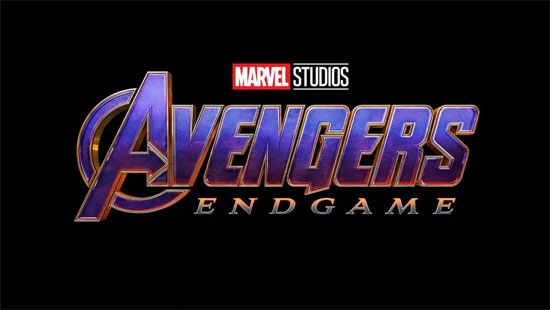
“Avengers: Endgame” redefined my understanding of the “cinematic universe,” as Marvel reinvented the rules of filmmaking: This film isn’t just the culmination of Marvel’s 11-year, 22-film journey; it replaced simple addition with exponential growth through exponential algorithms. By synthesizing, layering, referencing, deconstructing, and reimagining, it crafted an ultimate feast where “one is all, and all is one.”
As an ordinary MCU viewer, I can’t dissect every nuance and question like some fans do, but I’ll do my best to articulate the feelings we all share.
[Friendly reminder: Spoilers ahead!]
Interpreting “Endgame” can be approached from many angles, such as theories of time travel and its implications (BUG?), plot points, Easter eggs, and nostalgic elements. I’ll focus on some of the film’s most striking features.
First is its “anti-formulaic” nature.
Before Avengers: Endgame hit theaters, countless analyses and predictions flooded the internet. Almost every theory built upon the conclusion of Infinity War—a perfectly logical approach. Yet few could have anticipated how the film would actually unfold…
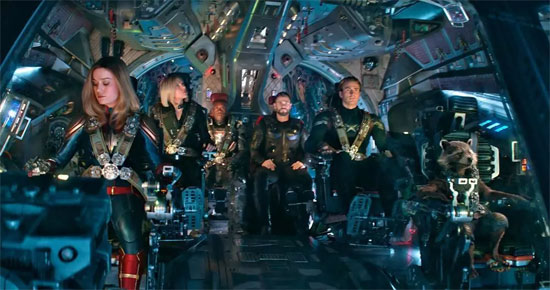
Shortly after Carol Danvers (Captain Marvel) brought Tony Stark and Nebula back to Earth, the remaining Avengers immediately zeroed in on Thanos. Within just 20 minutes of the film’s opening, they decapitated the previous movie’s main antagonist. For viewers untouched by spoilers, this moment would undoubtedly leave jaws dropping.
With Thanos dead and the Infinity Stones destroyed, how could the story possibly continue? This leads us to the next defining feature: “rich content.”
“Avengers: Endgame” is divided into several distinct chapters. Unlike many films, though its themes remain interconnected, each segment offers a vastly different cinematic experience (emotionally, it feels akin to listening to the “all-encompassing” “Bohemian Rhapsody”).
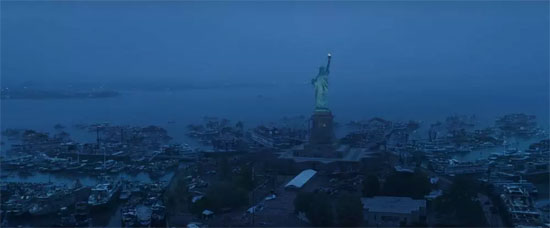
The opening monologue of Iron Man drifting through space, followed by the Avengers’ furious counterattack, Five years later, the heroes’ divergent lives unfold. Ant-Man delivers a pivotal solution, leading to the Avengers’ reunion and their time-traveling quest to gather the Infinity Stones. After successfully snapping their fingers, they face the 2014 version of Thanos’ assault, culminating in the epic final battle. The film concludes with funerals and farewells… Each segment stands independently, cohesive yet distinct, offering viewers a rich tapestry of experiences.
My personal favorite segment is the period between the five-year gap and the Avengers’ collective time travel. Though brief, it masterfully captures the desolate, chilling, and oppressive atmosphere of survivors living in a “hollowed-out” world after losing their “other halves.”
Another highlight here is the varied choices made by different characters.
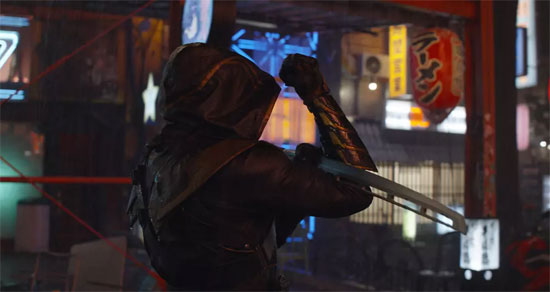
Some chose to deceive themselves into “moving forward,” like the hypocritical Steve. Others clung to hope, like Natasha who steadfastly held her ground. Some let go of the past to start anew, cherishing life—like Tony with his wife and daughter, or Bruce fused with the Hulk. Others numbed themselves through violent killing, like Clint becoming a drifter. Others choose self-destruction, like Thor, who becomes a couch potato with a beer belly…
The Avengers are heroes, but they’re also ordinary people like you and me. “Avengers: Endgame” lavishly portrays these everyday moments, laying the perfect groundwork and building anticipation for the ultimate counterattack to come.
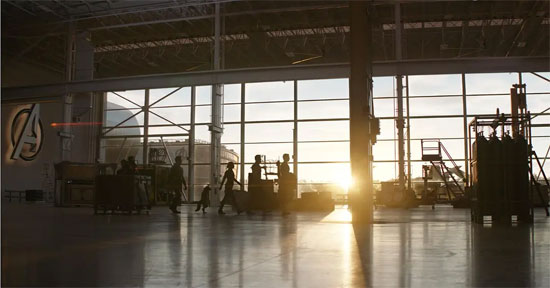
The most delightful segments of the film are undoubtedly the scenes where the Avengers travel back in time, with their “madcap references” becoming the most outstanding and pleasantly surprising strengths of Endgame.
A prime example is the scene where Steve and the Hydra crew step into an elevator. Just as audiences anticipate a reimagined, more intense version of the elevator fight from Captain America: The Winter Soldier, Captain America casually snatches Loki’s scepter with a simple “Hail Hydra.” This moment not only showcases Captain America’s growth but also pays homage to the “Hydra Captain” comic book meme from two years prior. A single scene delivers multiple layers of nostalgia and delight, leaving fans utterly captivated.
Moreover, whether you’re a fan of the Captain-Iron Man, Captain-Winter Soldier, or Captain-Carter pairings, the film delivers satisfying moments for everyone…
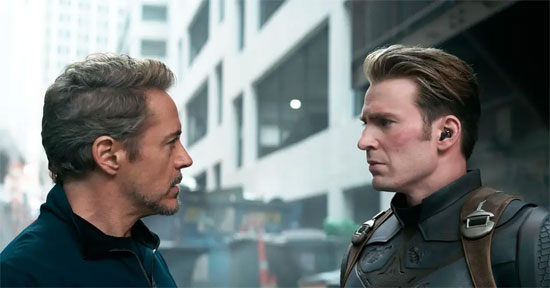
In this regard, the original six members—the earliest introduced and most deeply layered—remain the most beloved characters. Thor’s farewell to his mother, Tony’s embrace with his father, Steve’s lingering gaze at Carter… Each unexpected reunion is a poignant moment. The more familiar you are with the MCU universe, the more thrilling Endgame becomes.
In contrast, characters like War Machine and Rocket Raccoon serve more functional roles. Only Nebula stands out: while her story primarily sets up the ultimate villain Thanos and the irreplaceable loss of Gamora, her confrontation with her past self yields profound personal growth, enriching her character.
The climactic battle at the Avengers base stands as the most spectacular spectacle in the Marvel Cinematic Universe to date.
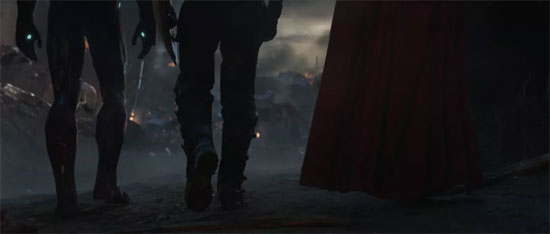
At his peak, Thanos remains an overwhelmingly formidable foe even without the power of the Infinity Stones. The action sequences pitting the “Avengers’ Big Three” against Thanos deliver rare, pulse-pounding spectacle—even for audiences desensitized by blockbusters. Captain America finally wielding the Mjolnir hammer to unleash his full might? The sheer thrill of that moment defies easy description…
Not to mention the return of those who disintegrated in Infinity War, now fighting alongside everyone once more—the emotional resonance here is off the charts.
No discussion of Endgame can bypass the two original members who sacrificed themselves in this film. It’s intriguing that over the five-year gap, Black Widow was the one who struggled most to let go, while Iron Man was the one who let go most easily.
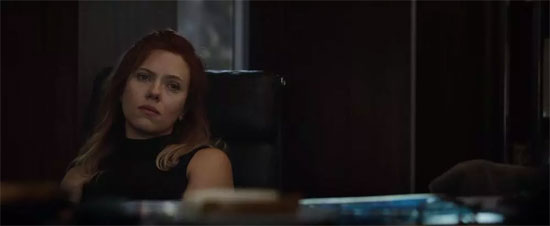
As everyone said after gathering the Infinity Stones, “We didn’t realize Natasha had no family left… We are her only family now.” Even Captain America showed up at the support group, proving everyone was learning to accept reality… Only Natasha never lost hope or fighting spirit. A woman like her would never give up any chance to “reverse the Infinity War.”
When Black Widow and Hawkeye set out on their quest for the Soul Stone, Clint smiled as he mentioned Budapest again, while Natasha responded with a quiet smile. At that moment, her sacrifice was already inevitable—for she held a belief that was longer-lasting, more persistent, and more “at any cost.”
Tony, however, was one of the few survivors who truly “accepted his fate.” He didn’t even join the expedition to confront Thanos… Tony married Pepper as promised, had a daughter named Morgan, and lived a life focused solely on the present, never looking back.
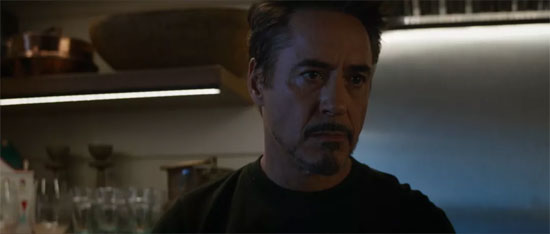
Deep down, he rejected all “unrealistic” hopes… Yet, searing memories could only be sealed away, never erased. The same ‘regret’ and “resentment” shared by everyone else would eventually become Tony Stark’s greatest driving force.
It’s interesting how, during the Age of Captain America, my favorite was Captain America himself. Yet after The Avengers 2, I grew increasingly fond of Iron Man… As his carefree, unrestrained persona gradually faded, Tony’s qualities of compassion, sincerity, dedication, and sacrifice became ever more prominent. When Doctor Strange raised a finger, Tony—driven by an overwhelming sense of duty—seized the gem without hesitation, bringing everything to an end.
“I am Iron Man.” This line, uttered 11 years ago, heralded the beginning of the Marvel Cinematic Universe. Eleven years later, it stands as a testament to the unrivaled dominance of the Marvel dynasty.

It must be acknowledged that Avengers: Endgame is quite unfriendly to casual viewers unfamiliar with the MCU. As the “final battle” concludes, the original Avengers have largely stepped back from the front lines, yet the legend of the Avengers is far from over.
It’s foreseeable that Disney and Marvel will continue exploring the MCU’s potential through diverse avenues to draw more viewers into the fold. May they break through limitations and allow the Avengers franchise to shine even brighter.
Here’s hoping that in Marvel’s next decade, we remain devoted fans of the Avengers.
Please specify:Anime Phone Cases » Avengers: Endgame 復仇者聯盟4:終局之戰 2019 Film Review: Reach the pinnacle